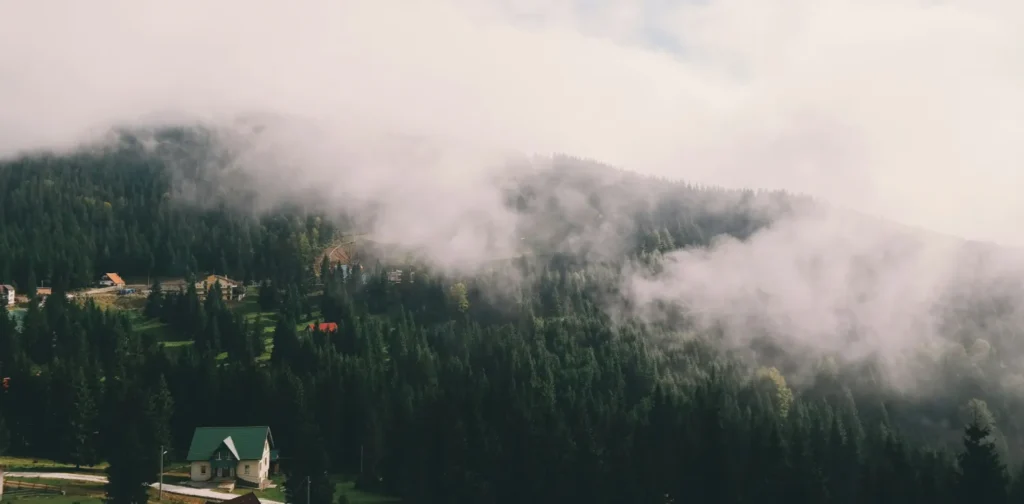Are Our Natural Carbon Sinks Losing Their Functions?

Photo: Brigitte Tohm on Unsplash.
Greenhouse gas emissions have reached record highs in recent years, raising the alarm about the severity of the climate crisis. The natural environment’s role is essential in reducing the amount of carbon floating in the air, but recent discoveries reveal that our natural carbon sinks have not been absorbing carbon in 2023.
Our Natural Carbon Sinks
The natural environment has the ability to act as a carbon sink, meaning that it can absorb more carbon than it produces. Some elements of it, such as forests, oceans, and soil, can also act as long-term carbon storage, which is vital for reducing the amount of carbon in the atmosphere.
For instance, studies found that the ocean can absorb up to 30% of CO2 emissions emitted by human activities. Meanwhile, forests can absorb 7.6 billion metric tonnes of CO2 annually, according to the World Resources Institute. These illustrate the importance of the natural environment in limiting the pace of climate change and the urgency to protect it from destruction.
Failed Functions?
With the current level of massive environmental degradation, scientists discovered a worrying indication that the Earth’s natural carbon sinks did not function as they should have been in 2023. A preliminary study indicates that forests and soils absorbed almost no carbon, a worrying sign of an environmental collapse.
The cause of this alarming situation can be circled back to the climate crisis itself. The year 2023 was the hottest year on record, triggering multiple environmental degradation cases, such as melting permafrost, more frequent wildfires, and warming oceans. These conditions disrupted nature’s ability to absorb and store carbon.
In the case of forests, for instance, drought and wildfires might emit as much, or even more, carbon as forests can absorb from the atmosphere, canceling out their functions as natural carbon sinks. A study by researchers from the Indian Institute of Technology found that global warming could reduce forests’ carbon uptake potential by 6%.
Moreover, high temperatures can also reduce the rate of photosynthesis, which involves a large amount of carbon. “At higher temperatures, it is possible that the rate of photosynthesis is reduced. The other explanation is that, if there are drought-like conditions, along with atmospheric aridity, plant productivity reduces, because there’s less water available,” said Subimal Ghosh, one of the authors of the study, as cited in Mongabay.
Halting Carbon Emissions
The natural environment is the foundation of life on Earth. With natural resources supporting human activities, the human societies develop. Unfortunately, the same human activities are among the major causes of environmental degradation. The high rate of forest loss, fossil fuel burning, and rampant pollution have caused the Earth’s natural carbon sinks to lose their functions.
Therefore, this calls for bold, concrete actions to halt greenhouse gas emissions that go beyond relying on nature to offset our emissions. Transitioning from fossil fuel to renewable energy sources must be a top priority for governments, businesses, and civil society worldwide, along with protecting and conserving biodiversity and the natural environment.
Editor: Nazalea Kusuma

Co-create positive impact for people and the planet.
Amidst today’s increasingly complex global challenges, equipping yourself, team, and communities with interdisciplinary and cross-sectoral insights on sustainability-related issues and sustainable development is no longer optional — it is a strategic necessity to stay ahead and stay relevant.

Kresentia Madina
Madina is the Assistant Manager of Stakeholder Engagement at Green Network Asia. She holds a bachelor’s degree in English Studies from Universitas Indonesia. As part of the GNA In-House Team, she supports the organization's multi-stakeholder engagement across international organizations, governments, businesses, civil society, and grassroots communities through digital publications, events, capacity building, and research.


 Indian Gig Workers Push Back Against 10-Minute Delivery Service Strain
Indian Gig Workers Push Back Against 10-Minute Delivery Service Strain  Call for Governance: Grassroots Initiatives Look to Scale Efforts to Conserve Depleting Groundwater
Call for Governance: Grassroots Initiatives Look to Scale Efforts to Conserve Depleting Groundwater  Integrating Environment, Climate Change, and Sustainability Issues into Education Systems
Integrating Environment, Climate Change, and Sustainability Issues into Education Systems  Finally Enforced: Understanding the UN High Seas Treaty
Finally Enforced: Understanding the UN High Seas Treaty  Risks and Opportunities of Submarine Communication Cables for Sustainable Development
Risks and Opportunities of Submarine Communication Cables for Sustainable Development  Rising Attacks and Violence Against Land and Environmental Defenders
Rising Attacks and Violence Against Land and Environmental Defenders